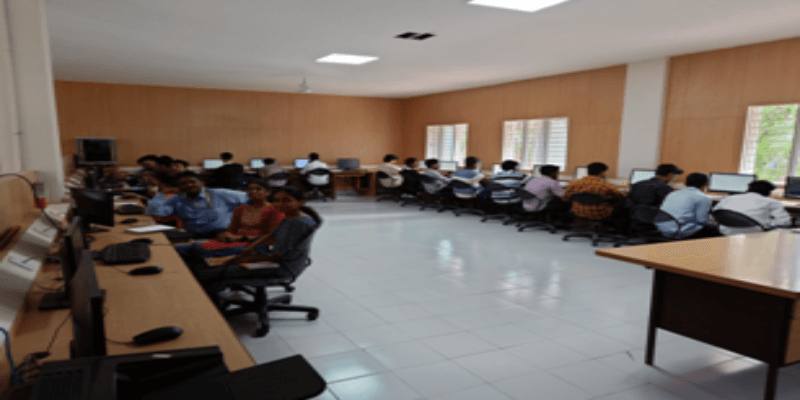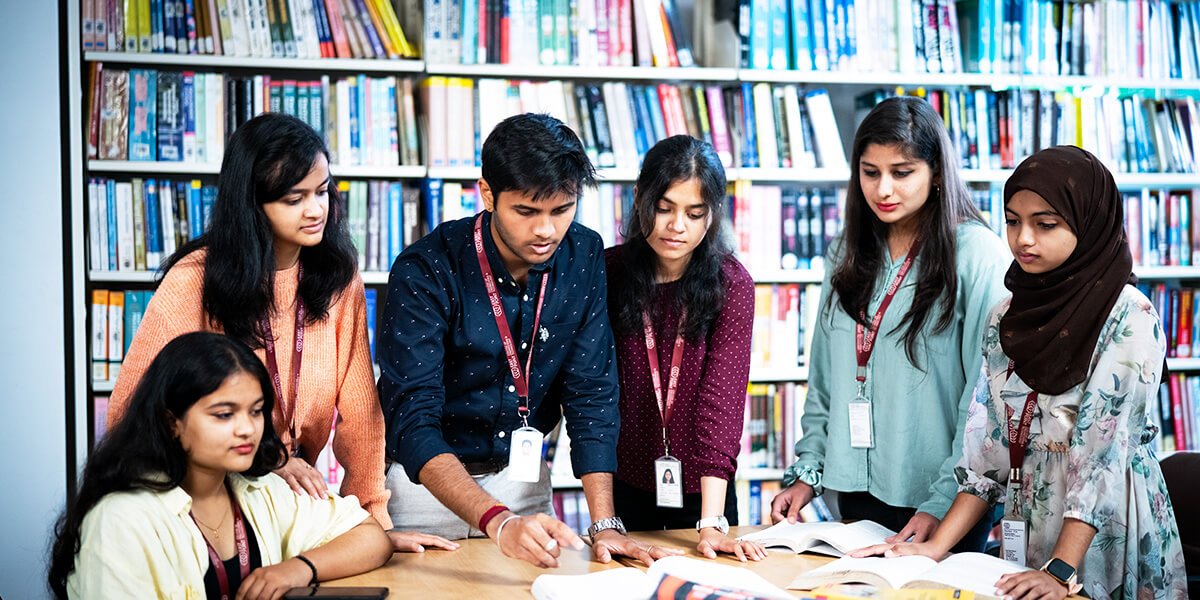Department Profile

Department of Basic Sciences was established in the year 1999 and is supporting department to all engineering programmes comprising of Department of Mathematics
Mathematics plays a fundamental role in engineering for numerous critical reasons and serves as the foundational language for engineers. Many technological breakthroughs in engineering are rooted in mathematical principles, emphasizing its indispensable role in driving innovation and progress across diverse engineering disciplines.
The department, supported by well-qualified and highly experienced faculty, equips students with the mathematical tools necessary for problem-solving and analysis in various engineering disciplines. Through a combination of theoretical instruction and practical exercises, the department ensures that students develop a strong mathematical foundation essential for success in their engineering studies and future professional endeavours.
The Department of Mathematics recognized for research by VTU, Belagavi for pursuing a Ph.D. It is well-equipped with established facilities that support both sponsored and academic research, along with consultancy activities. The department's research areas are focused on Computational Fluid Dynamics and Graph Theory.
HoD Message
Dear Students,
I am pleased to extend a warm welcome to you all to embark on a transformative journey into the captivating world of mathematics.
Mathematics stands as the foundational language of engineering, playing a fundamental role in driving innovation and progress across diverse disciplines. Engineering Mathematics serves as the cornerstone of analytical thinking and problem-solving skills essential for success in engineering and beyond.
The department is supported by well-qualified and highly experienced faculty, we equip students with the mathematical tools necessary for problem-solving and analysis in various engineering disciplines. Through a combination of theoretical instruction and practical exercises, we ensure that students develop a strong mathematical foundation crucial for their engineering studies and future professional endeavours.
Recognized by VTU for pursuing a PhD, our department is well-equipped with established facilities that support both sponsored and academic research. We focus on areas such as Computational Fluid Dynamics and Graph Theory.

Dr. Doreswamy H S
East Point College of Engineering and Technology
At East Point, we foster a dynamic learning environment that encourages curiosity, creativity, and critical thinking. Whether your passion lies in calculus, algebra, statistics, or any other branch of mathematics, our dedicated faculty and modern teaching methodologies are here to support your academic and professional aspirations.
I invite you to join us at East Point College of Engineering & Technology and become part of our vibrant community of aspiring engineers. Together, let us explore the limitless possibilities of mathematics and shape the future of technology and scientific advancement.
Laboratories

MATLAB
MATLAB :- MATLAB is considered as one of the most important tools and modern computer language, and this course enable the students to learn many of MATLAB commands and how to use them in programming to solve many problems in different mathematical subjects, specially in numerical analysis and other subjects which are connected to computer oriented mathematics.
Program Outcomes
- Engineering knowledge :- Apply the knowledge of mathematics, science, engineering fundamentals, and an engineering specialization to the solution of complex engineering problems.
- Problem analysis :- Identify, formulate, review research literature, and analyse complex engineering problems reaching substantiated conclusions using first principles of mathematics, natural sciences, and engineering sciences.
- Design/development of solutions :- Design solutions for complex engineering problems and design system components or processes that meet the specified needs with appropriate consideration for the public health and safety, and the cultural, societal, and environmental considerations.
- Conduct investigations of complex problems :- Use research-based knowledge and research methods including design of experiments, analysis and interpretation of data, and synthesis of the information to provide valid conclusions.
- Modern tool usage :- Create, select, and apply appropriate techniques, resources, and modern engineering and IT tools including prediction and modelling to complex engineering activities with an understanding of the limitations.
- The engineer and society :- Apply reasoning informed by the contextual knowledge to assess societal, health, safety, legal and cultural issues and the consequent responsibilities relevant to the professional engineering practice.
- Environment and sustainability :- Understand the impact of the professional engineering solutions in societal and environmental contexts, and demonstrate the knowledge of, and need for sustainable development.
- Ethics :- Apply ethical principles and commit to professional ethics and responsibilities and norms of the engineering practice.
- Individual and team work :- Function effectively as an individual, and as a member or leader in diverse teams, and in multidisciplinary settings.
- Communication :- Communicate effectively on complex engineering activities with the engineering community and with society at large, such as, being able to comprehend and write effective reports and design documentation, make effective presentations, and give and receive clear instructions.
- Project management and finance :- Demonstrate knowledge and understanding of the Engineering and management principles and apply these to one’s own work, as a member and leader in a team, to manage projects and in multidisciplinary environments.
- Life -long learning :- Recognize the need for and have the preparation and ability to engage in independent and life -long learning in the broadest context of technological change.

